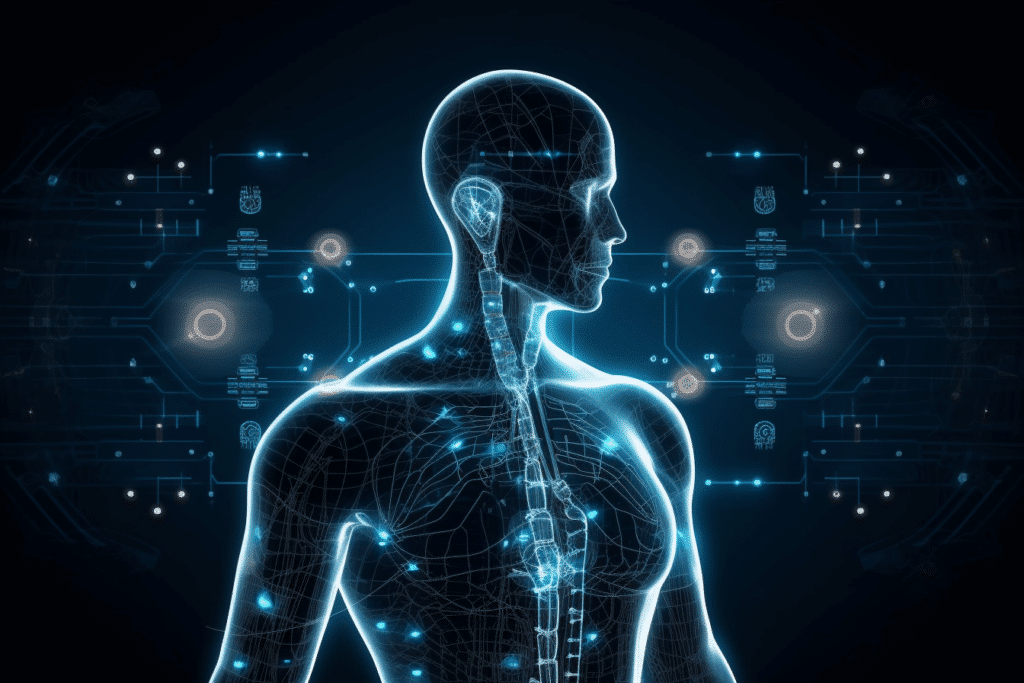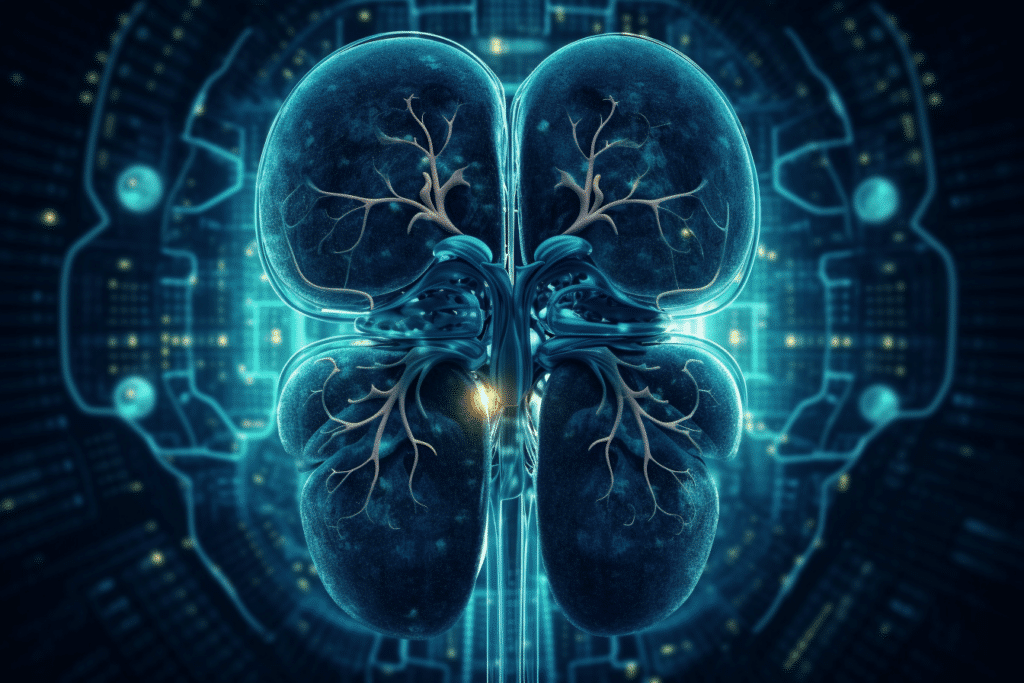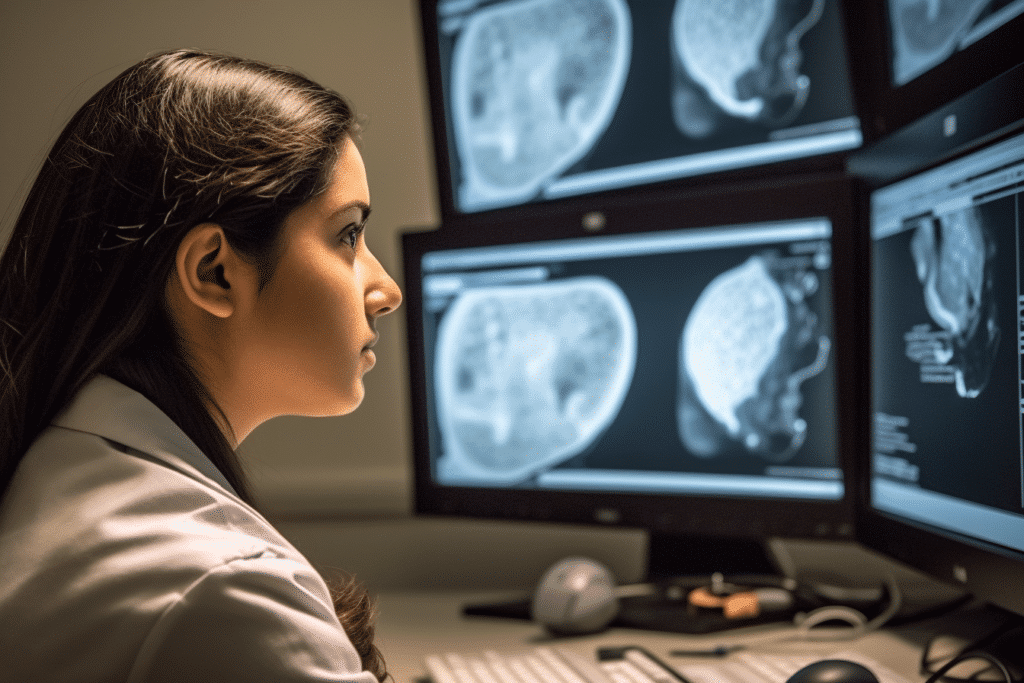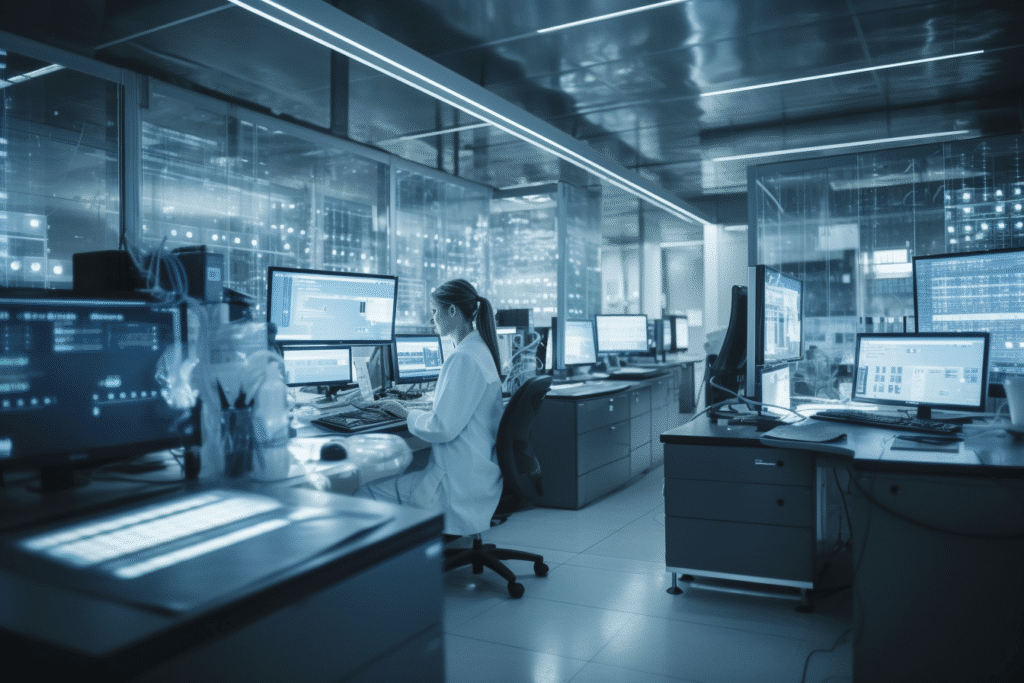Prevention is better than cure. Surprisingly, when we look at this expression that our ancestors used to repeat to us, we find it in almost every possible language and culture (e.g. in German, “prevention is the mother of the china cabinet”; in Finnish, better to look than to regret”).
Paradoxically, due to lack of time or means, medicine in general is limited in its ability to anticipate on a large or smaller scale the detection of early stage diseases.
However, a major tool appears to be an indispensable element for the future of medicine, precisely to remedy the problems of anticipation.
And it is about medical Artificial Intelligence (medical AI).
Indeed, medical AI is an incredible tool to anticipate potential diseases and prevent further complications.

1/ Early detection of diseases: how can medical AI identify at-risk patients even before symptoms appear?
Some medical AI associated with the concept of machine learning can be used to identify people at risk (likely to develop certain diseases), even before symptoms appear.
It is with this type of early detection that the chances of cure and positive treatment results are increased.
A study on the use of AI was conducted by researchers at the University of California, San Francisco to identify people at risk of developing chronic kidney disease at an early stage.
In total, health data from more than 700,000 patients were analyzed for risk factors associated with chronic kidney disease.
Using a machine learning algorithm (based on the concept of machine learning), the researchers developed a predictive tool that predicted the risk of developing chronic kidney disease in patients even before symptoms appeared.
Successfully tested in patients at high risk of chronic kidney disease, this gives great hope for the future: early detection of the disease and better management of patients.

2/ Personalization of treatment: medical AI improves the effectiveness of treatments according to each patient
As its name indicates, personalized medicine allows us to adapt the treatment(s) of a patient according to specific data that characterizes him/her. The goal is to improve the effectiveness of these treatments and reduce side effects.
This time, it was researchers at Stanford University who used machine learning to personalize radiation therapy treatments for head and neck cancer patients.
In this study, data from previous patients were used to identify the most effective treatment regimens based on factors such as age, gender, tumor location, and prior response to treatment.
With this algorithm, physicians can now recommend precise doses of radiation therapy for each individual patient as a unique individual.
Ultimately, an improvement in the effectiveness of the treatment was observed, with a reduction in side effects.
This type of approach, specific to personalized medicine, can be applied to other areas of treatment to improve patient outcomes and reduce treatment costs.

3/ Analysis of massive medical data to develop new personalized treatments thanks to medical AI
We were talking about machine learning earlier, but there are also other processes such as the digital twin.
A concrete example of the application of the first process in the medical field is undoubtedly the Blockchain Swarm Learning technology developed by Galeon.
Empowering researchers to analyze large amounts of medical data, and using blockchain to train medical AI, gives them the ability to identify trends and patterns to better understand diseases and develop new treatment methods.
With the consent of the individual, data can be collected from biological samples such as saliva, urine, blood(biomarkers), information on health status, lifestyle, or the environment in which the patient lives and their family history.
Starting with these massive data collections, researchers can analyze the data using AI tools to better understand diseases and develop more personalized and effective treatments for patients.

4/ Reducing health care costs with early detection of diseases
With more hindsight, it appears that early detection of disease using medical AI tends to reduce healthcare costs, particularly by reducing the need for expensive treatments or intensive care.
Indeed, when the disease is detected early, the chances of preventing it from spreading (depending on the case) are maximized.
Early treatments will generally be less expensive than those dedicated to treating the disease in the long term.
The cost of tests and other procedures that could be avoided after late detection of the disease must also be taken into account.
By identifying people at high risk of developing certain diseases, physicians can avoid ordering unnecessary tests and procedures for patients who are not at risk.
And then there’s still the time-saving argument . Early detection of disease using medical AI can lead to fewer hospitalizations and follow-up visits, which can reduce healthcare costs by saving time and resources.

Conclusion
Medical AI for:
- Prevention of diseases and early detection of people at risk.
- Personalize patient treatments and improve their effectiveness.
- Data analysis with machine learning to better understand diseases and develop new treatment methods
- Reduce health care costs by avoiding the need for expensive treatments or intensive care.
- Avoid unnecessary tests and procedures, saving time and resources.




0 comments